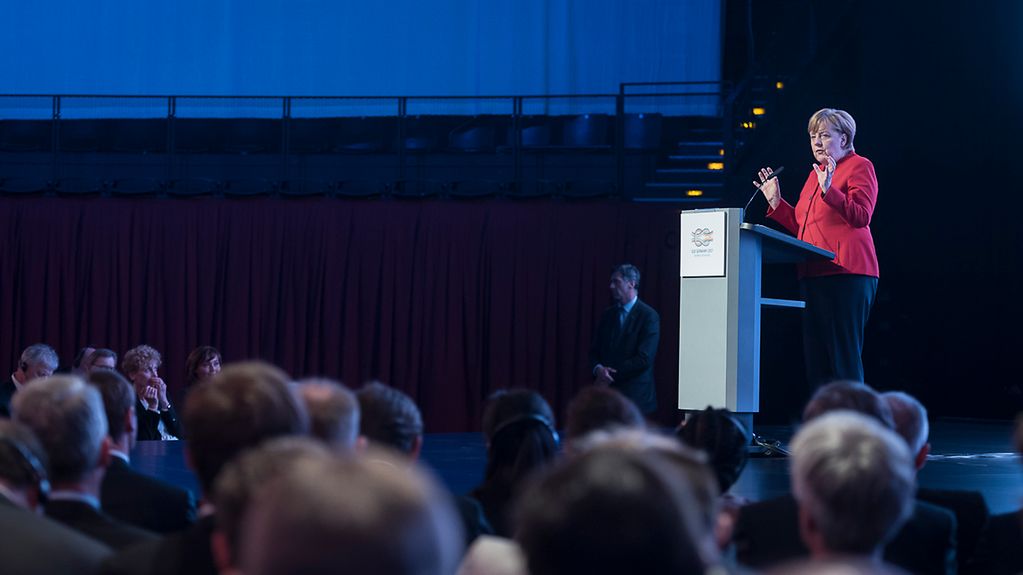Merkel at B20 Dialogue Forum
The G20 bore particular responsibility, Chancellor Merkel said at the B20 Summit in Berlin, because their countries represented three quarters of global economic output. There had, nevertheless, been a rise in protectionist measures in recent years.
2 min reading time

It's up to the G20 to move against protectionism across the world, Angela Merkel said
Photo: Bundesregierung/Kugler
Video
"The very existence of the G20 means that isolationism and protectionism are a dead end and not ways to move forward," Chancellor Angela Merkel emphasised. "Those who attempt to restrict international competition may possibly gain short-term advantages," she warned, without naming any specific countries, "but in the medium to long term they will weaken their own ability to innovate." That is why freedom and openness are so important for the economy, Merkel said.
Coordination at the international level
The global economic crisis which began to unfold in 2007 demonstrated very clearly, Merkel said, that no country in the world could stop such undesirable developments and their domino effect on its own. "And no country can on its own effectively prevent such a crisis ever happening again," she added.
What was needed, the Chancellor said, was a common regulatory framework so that countries could benefit from the opportunities globalisation presented and also minimise its risks. But certain basic decisions first needed to be taken to set the right course and give everyone medium- and long-term orientation, thus reducing the risk of the crisis repeating itself.
Germany, which took over this year's G20 Presidency from China, will be hosting the summit of heads of state and government in Hamburg in early July. Next in line for the G20 Presidency is Argentina.
Strengthening global networking
During its G20 Presidency Germany would be working towards putting in place measures to mitigate global risks, Merkel explained. That involved promoting global economic stability and resilience, strengthening institutions and delivering on common standards for global public goods. Key aspects of the G20 agenda for strong, sustainable, balanced and inclusive growth would be taken forward, Merkel said. Even maintaining the status quo could sometimes be considered a success, the Chancellor added.
Constructive recommendations
Chancellor Merkel said she was grateful for the strong commitment from business representatives. Policy-makers had received constructive and useful recommendations from the Business20 Summit, she said, since in the end the dialogue with civil society was key to the success of the G20 Summit in Hamburg.
B20 stands for "Business 20", the official business dialogue forum of the G20 countries, the 20 most important industrialised nations and emerging economies. At the same time as Germany took over the G20 Presidency, German business representatives assumed the B20 Presidency. More than 700 international business representatives are involved in this dialogue process.